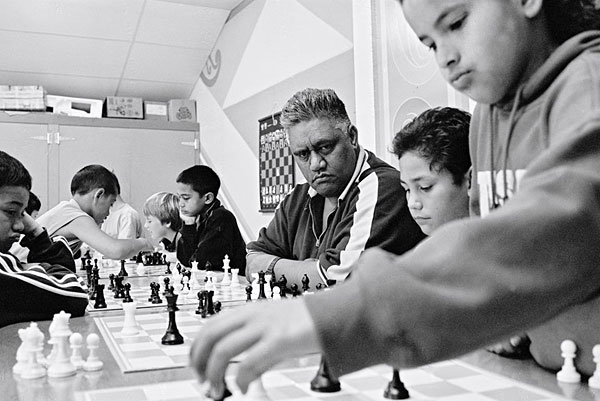I was 9 and it was the middle of religious education at our state primary school when a lady told our class that God didn’t love the Tuhoe people because they were terrorists. I still remember that day because I wanted to cry I was so angry. I knew she was lying. So I walked out of her class and went to the office and told them I wasn’t going to go to religious education anymore. The teachers rang my mum and she came in and told them that neither me nor my brother were ever going back to religious education.
Sometimes kids would say racist things and I used to try to ignore them a lot. I played rugby for our town and there were some boys in my team who’d call us racist names. One day at training a boy called me a dumb N***** and I had enough and ran at him and punched him.
Well I got in huge trouble. The coach had heard it all but told me it was all my fault for reacting and I need to just ignore it, as usual he never told off the boys who said racist things. I walked off and was crying. My Dad came out onto the field and told off my coach. My coach kept trying to blame me but my Dad told him he was useless and shouldn’t let the other boys abuse us and then expect us to take it.
It was around this time me and my cousin used to be picked on by a group of boys at our school. They’d say racist things about us and we refused to take it, we fought back. Teachers didn’t really do much, we were told to ignore it but it’s hard to ignore someone giving you a hiding. At lunch they’d just chase us and fight us, sometimes 10 to 2 so it was never a fair fight.
One day my cousin left some 4 x 2s in the bushes. He never told me what he’d done but that day at lunch when they were all chasing us he shouted at me to follow him to the bushes. We ran out of the bushes with these pieces of wood and all the boys who’d been about to bash us started screaming and running away. They were very fast and we didn’t even hit any of them. We ended up in the principal’s office and we were the ones in big trouble not the boys who’d been bullying us for ages.
My Dad came in and he argued with the principal and told him that if the school couldn’t guarantee our safety then our family would send in people to the school to make sure we were safe. He meant it and so from then on the school made sure the bullying ended. I left soon after to go to another school anyway and I remember being terrified as I was going to a much bigger school and assumed the bullying was going to be way worse. But when I got there the culture of the school was great and there was no bullying like what we had gone through.
When I started college I didn’t know why but I kept getting put into woodwork and metalwork option courses that I’d never signed up for. I had won an academic scholarship in Year 9 and ended up getting excellence in NCEA 1, 2 and 3, but for a while someone there decided I needed to do a trade. There is nothing wrong with tradie work, I actually love it – that’s what I do during the holidays – but it’s unfair to look at me and decide: Oh yeah OK, that brown kid he can do woodwork even though he asked to do Financial Management.
After I got excellence in Year 11, me and a mate got an invite to start going to meetings for excellence students. Well we turned up and the lady asked us what we were doing there because this was a meeting for excellence students. A lot of the Pakeha kids who were there started giggling at us. I can’t remember what we said to her but she never really welcomed us into her meetings. I’ve got to admit we paid no attention in her meetings. A few more times when we’d turn up she’d look at us and ask if we were in the right place. She never remembered our names. We were the only Maori and Pasifika boys there.
Over the years I’d get used to having to defend everything Maori, during class discussions other kids would argue that the Treaty is racist or that Maori scholarships are racist.
Once I got up to say that my scholarship came from my tribe not from the Government and someone shouted out “Hone Harawira” from the back of the class. Being a Maori kid in a mostly Pakeha world, yeah. You’re often put on the spot whether you like it or not. One minute you’re defending your tribe in class. Next minute you get told to lead the haka or speak at a powhiri for the school.








